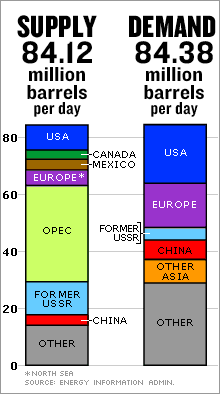Why do the Democrats suck so badly these days--at least in the vote-garnering department? Kevin Drum has a
list of popular answers.
Too socially liberal. Need to move to the center.
Too wishy washy. Need to be loud and proud liberals.
Too tin-eared. We're terrific on the issues, but we need to frame them properly.
Too wimpy. Need to convince Americans we can kick Osama's butt.
Too wonkish. People don't want laundry lists, they want character.
Too gutless. Need to get down in the gutter with Karl Rove and rip his lungs out.
Too shortsighted. Need to create liberal versions of the Heritage Foundation to help us build long-term vision.
Too tired. Need to break loose from the past and offer fresh, original ideas.
Too splintered. Need to quit pandering to the interest groups that actually vote for us.
None of the above. It's the media's fault.
Kevin Drum quickly skewers #9 in his description of it, but I enjoy
Fafnir's more humorous rebuttal:
Sometimes I just can't stop worryin about the Democratic Party an its terrible internal divisions an stuff. On the one side you got your centrist DLC-types with their balanced budgets an their lax gun control regulation an their health care plans an their reverence for Bill Clinton, and on the other side you got your hard-core lefty Howard Dean types with their balanced budgets an their lax gun control regulation an their health care plans an their reverence for Bill Clinton. If only there was some kinda way to bridge this vast an terrible ideological gap!
If I had to bite the bullet and choose, my dark side would lean toward #6. But some combination of #3 , #7, and #8 (which are more or less the same thing) is probably the wise answer. And, yes, #10 is correct to a degree, but Democrats need to learn to manipulate the press as well as the Republicans. I blame Democrats for failing to figure out how to do that as effectively. At this point, if George Bush said he believed the earth is flat, the
New York Times would write that opinions differ on shape of the earth and then get back to the latest Paris Hilton "news" of the day. Our press corps needs to get over its case of A.D.H.D. and focus on exposing the b.s. coming from our politicians. Aw, it's hopeless, isn't it?


